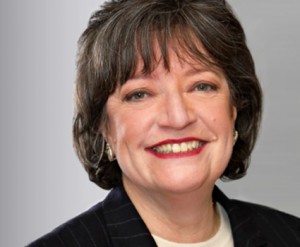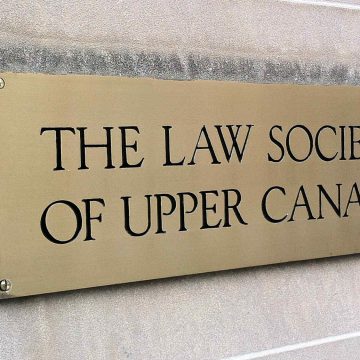Last week, the Law Society of Upper Canada elected Janet Minor, a bencher since 2006, to become its next treasurer. Earning 31 of 60 votes at convocation, she edged out fellow benchers Christopher Bredt and Raj Anand to secure the Law Society’s top position.
Minor says her tenure will be unique in one fundamental way: unlike her predecessors, she is the first treasurer to have led a career in the public sector. Indeed, she served as general counsel in the constitutional law branch at Ontario’s Ministry of the Attorney General — an experience she sees as key advantage.
Here she speaks to Precedent about what she hopes to bring to the role.
 Having worked at the Attorney General’s office in constitutional law, how might that help you as treasurer?
Having worked at the Attorney General’s office in constitutional law, how might that help you as treasurer?
Janet Minor: If there is one thing I learned doing constitutional litigation, it’s that there are many different perspectives on social issues. And it’s important to appreciate all them when taking a policy position. Also, because my main area was public law, I am very interested and cognizant of issues facing marginalized people.
And you would have represented different kinds of clients than someone in private practice.
JM: When you work for the government, yes the “client” is the government — but you need to try to sympathize with the views of many different people. I’ve also worked under different governments and all political parties. So I’m quite used to learning how to approach issues in different ways that are helpful.
It’s interesting. That is, in a sense, the role of the treasurer. There are a lot of opinionated benchers and you have to find some kind of consensus. So you’ll need to have the skills to accomplish that.
JM: I like to think I have them.
How will you try to stay relevant in the minds of lawyers?
We always need to enhance our outreach. We have a huge amount of material on our website that people don’t always know how to navigate. So I think we could do some improving there. But it’s important for us to really partner with other legal organizations so that they can pass that information on to their members.
You have become treasurer at a time when the Law Society is in the midst of significant change. Whether it’s the Law Practice Program or Alternative Business Structures, there’s a lot going on — is that exciting for you?
JM: It’s very exciting. We have a number of challenges in the areas of globalization, technology, demographics and the need to make the legal profession more accessible and inclusive.
When it comes to access to justice, can the Law Society do more?
JM: Well, we want to do more. We are examining our processes to see if there is more we can do — and no doubt there is.


